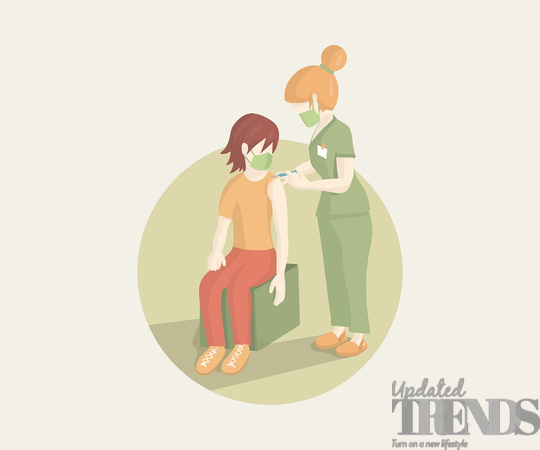Women who are planning to or are looking forward to have a COVID-19 vaccine need to know about a few things. Health experts have opined that women are more likely to experience the side effects after they receive the COVID-19 vaccine. It has been said that some of the common side effects of the vaccine include a fever and a sore arm in women who have received the AstraZeneca/Oxford vaccine.
Professor Anthony Harnden, the deputy chairman of the Joint Committee on Vaccination and Immunization has said that the first dose is more likely to give a few minor side effects when compared to the second one. It has also been said that women are more likely to get the side effects than men. Harnden added that the symptoms due to the vaccine are expected to last up to 48 hours after they receive the first shot.
The professor during an interview with a leading daily was asked if people might experience some side effects after the first shot to which he answered that the AstraZeneca/Oxford vaccine is very likely to give some minor side effects that can include fever, sore arm, malaise, headache and sometimes even chills. The symptoms are likely to be seen more in women and younger women. On the other hand the Pfizer vaccine, the effects are completely reverse. The side effects with this vaccine are expected to be seen more in the second shot.
Experts have advised that people who experience fever or sore arm can take some paracetamol to reduce the side effects. It has also been said that people who experience such symptoms during the first shot should not avoid the second shot due to such symptoms. The second shot is likely to be less reactogenic. Jim McManus, the director of Public Health for Herts County Councils said that things are going in the right direction but the risks would continue to be there as the virus circulates very fast when people are being vaccinated.
Photo Credits: Pixabay











